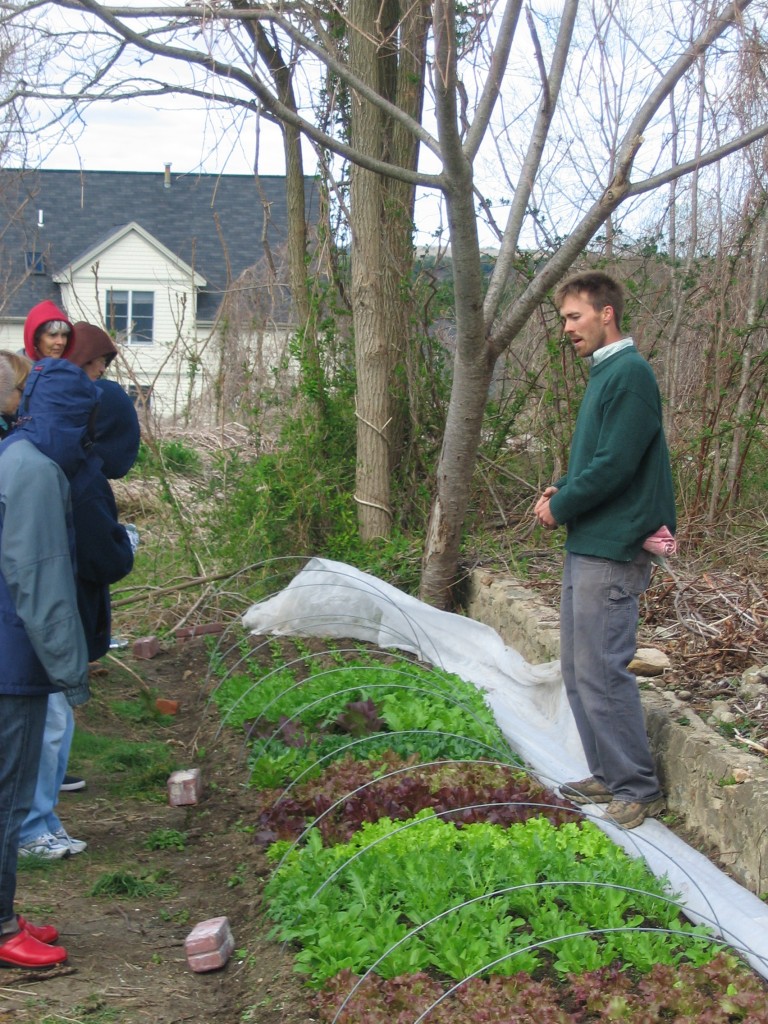Sun 11 Apr 2010
Like a Healthy Soil; We Thrive within the Rich Diversity in our Community
Posted by admin under Events, Food Systems, Uncategorized
No Comments
Before we get to the celebration of our community, this Sunday evening I would like to brings two interesting articles/op-ed pieces to folks attention:
- Paul Krugman provides a view on the economics of climate change with his article “Building a Green Economy” in today’s New York Times Magazine. See also our quick 2-pager on Climate Change and Agriculture in the Northeast from last November.
- On the other end of the spectrum, the Boston Globe published an op-ed piece by Elliot Entis on the merits of genetically engineered crops which was titled “Green Thumbs”. This will surely bring a broad response from readers on the controversial subject. Thankfully, NOFA-Mass provides good information about organic growers opposition to Genetically Engineered Crops on their website. No doubt, Ronnie Cummins of the Organic Consumers Association would offer quite a different view than Entis’s piece published in today’s Globe.
There are quite a few points in Entis’s editorial which I take exception to, not the least of which is his claim that, “since genetically engineered crops have been planted, there have been no incidents of harm to man, beast, or the environment.” Entis is correct in stating that many conventional growers have come to appreciate the technology in genetically engineered crops, which allow them to streamline herbicide applications from 4 or 5 chemicals to 1 chemical (e.g. glycoophosphate, commonly the brand name Roundup). I was able to observe this on a farm tour through Boulder County Colorado last June, where sugar beet growers were affirming that without roundup ready technology they wouldn’t have planted Sugar Beets. But before we adopt wide scale application of a technology, I believe it is necessary to consider the impact of our decisions. Contamination of non-gmo (genetically modified organisms) seed with gmo traits is in my mind a clear example of “harm to man, beast, or the environment”. Whether its the case of Canadian grower Percy Schmeiser whose Canola crops were contaminated by Roundup Ready Canola, or the current concerns held by the organic table beet or chard seed producers, planting of gmo crops continues to have major implications for our society. Hopefully we’ll see a well written rebuttal to Entis’s op-ed piece; maybe even a perspective which includes the proper role of soil stewardship in continuing to feed and nourish our globe, as opposed to the strong bias toward technology as the silver bullet of the future.
While Entis states, “genetically engineered crops are now under develop to address this constraint” (fresh water scarcity), organic and biologically minded conventional growers have already been practicing methods of agriculture for decades which works to build soil organic matter, thereby increasing carbon levels in our soils. As we increase organic matter in our soils, we build the resilience necessary to face the impact of climate change, new rainfall patterns, and the availability of irrigation. But a stark difference is at the heart of focusing on improving our soils rather than relying on technology… that difference would be who profits from such action. A reliance on new seed technology fosters long-term dependence on seed companies and their “patented” seeds, while improving our soils builds profits for the farmer. No doubt, as a vegetable grower I’ll vote for the latter. Unlike the ballot cast at recent town elections, or with our dollar in the marketplace, this vote will take the form of remineralizing of our soils, sowing cover crops, reinoculating our soils with mycorrhizal fungi (which will help us build glomalin levels in our soils) and beneficial bacteria. I consider myself lucky, at the farm we get to vote every single day for the future we would like to help manifest; and we invite you to join us.
Springtime is a busy one around the farm… along with the usual farm activities: seeding in the greenhouse, spreading amendments and field sprays of fish and biodynamic preps, getting the apprentice crew up to speed, we have been enjoying a rather productive couple of weeks engaging with our local community. Through a dynamic process of sharing and learning we aim to add our threads to an ever stronger network focusing on sustainable agriculture in SE Massachusetts.
Among the long list of the past few week’s hi-lights:
- In Fall River, community gardens are blossoming; we participated in a community workshop on seed selection on April 6th at the Oak Village Apartment community Room.
- See the Farm to Table blog entry about The Friends Academy Garden just North of the farm on Tucker Road.
- Sharing the Harvest at the Dartmouth YMCA is in the process of building a new greenhouse for starting seedlings; last week we joined farmer Dan in assembling the ground posts, bows, and purlins. This week they’ll be skinning the greenhouse with poly and growing starts in their brand new greenhouse!
- This past Saturday we hosted one of NOFAMass’s Spring Organic Gardening Workshop Day here on the farm… a hearty group of folks braved the strong west wind, rejoiced in the solar heated greenhouse and picked up a few new tips and tools for the 2010 garden season.
A final note, at the end of March, President Obama declared the 31st Cesar Chavez day … For more info see http://www.chavezfoundation.org/ or the link to a PBS program on the subject – http://www.pbs.org/itvs/fightfields/. Quite a worthy tribute to one of the heroes of the American agricultural labor movement, and good reminder for us to be thankful for the folks who grow our food both here in the USA and the crops which are imported across our borders.

No Responses to “ Like a Healthy Soil; We Thrive within the Rich Diversity in our Community ”